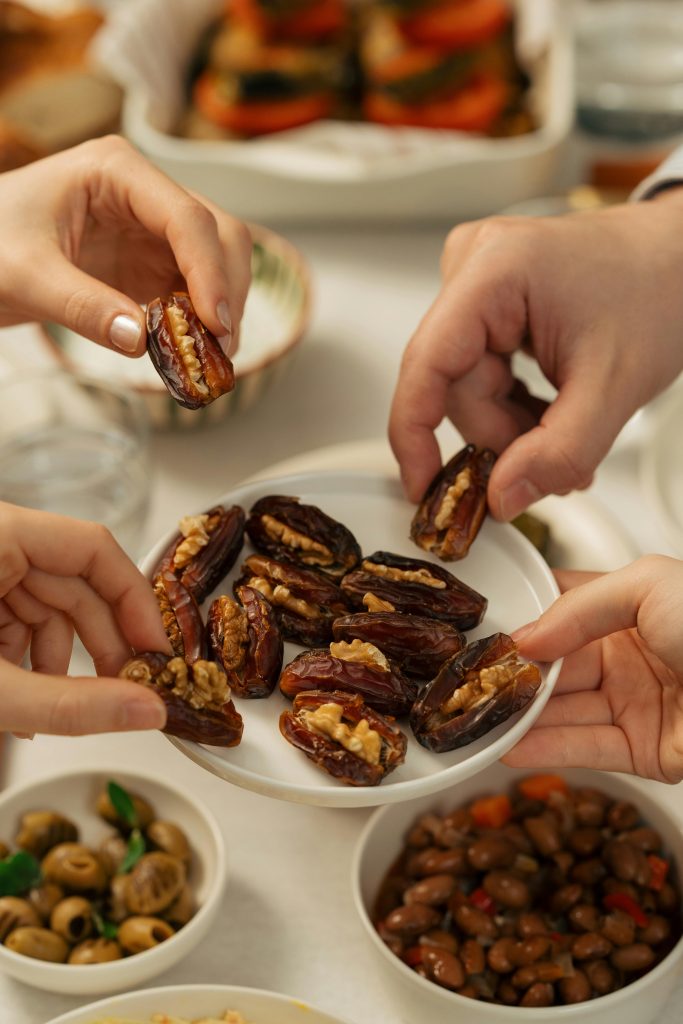In today’s fast-paced world, food is becoming more and more perceived not as pleasure but as a way to replenish the body with nutrients. We fill our stomachs with food like we fill a car with gasoline, because without it the car won’t move. We often overlook the fact that food’s role goes far beyond just maintenance!
Many of us eat in a hurry: on the go, in front of screens, or while deep in thoughts. This approach often leads to overeating, digestive disorders and weight gain. The lack of enjoyment from food is compensated for by its quantity, thus creating a vicious cycle.
Mindful eating offers an alternative. It’s not just a way to lose weight but also a way to achieve harmony with yourself and your body. When you truly enjoy your food, you start to better understand your needs, which contributes to a healthy balance.

What Is Taste Therapy?
Taste therapy is an approach based on mindful eating. The idea emerged from modern psychology and dietetics, emphasizing a slow, conscious process of food consuming. However, some principles of taste therapy trace back to Ayurveda, an ancient Indian system of health and wellness.
Experts say that taste therapy is similar to acupuncture in its effects on the body—but instead of needles in the skin, the healing comes through the delightful process of rediscovering the joy of eating.
Key Principles of Taste Therapy
- Focusing on the moment: Eating slowly allows you to fully experience the taste of your food.
- Analyzing flavor sensations: Paying attention to texture, scent and temperature.
- Fully experiencing the process: Not just eating but enjoying the moment.
How Does It Help With Weight Loss?
When you eat mindfully, the signal of fullness has time to reach your brain before you overeat. Focusing on flavor sensations helps you enjoy smaller portions, positively impacting your metabolism and reducing calorie intake. You’ll get more satisfaction while consuming fewer calories!

Benefits of Taste Therapy for the Body
- Better Appetite Control: You focus entirely on your body’s needs rather than psychological triggers.
- Healthy Metabolism: Mindful eating reduces the risk of overeating and improves digestion.
- Emotional Balance: Enjoying food brings more satisfaction, lowers stress levels, and helps prevent depression and anxiety.
Why Is It Important to Enjoy Food?
Did you know that food and sex are the two primary sources of pleasure gifted to us by Mother Nature? That’s right: during eating, the body produces happiness and pleasure hormones—endorphin, dopamine, and oxytocin. These hormones help us withstand stress and life challenges.
Scientists discovered that slow chewing activates enzymes in saliva that stimulate the production of these “happiness hormones.”
These hormones not only regulate brain function but also act as neurotransmitters. When produced in sufficient amounts, they enhance brain performance: improve concentration, elevate mood, boost positive motivation, and promote better behavior.
In addition to cognitive regulation, happiness hormones have additional benefits:
- Increase physical activity.
- Enhance oxygen delivery to all organs and systems.
- Normalize sleep and metabolism — precisely what supports weight loss.
However, like many good things, the hormonal boost from food also has a downside—overeating.

Why Do We Overeat?
The old joke that you need to “eat a bucket less” to lose weight may not seem funny to everyone. Our tendency to overeat is not just the result of habit or family eating patterns. As it turns out, it goes much deeper.
Physiology Rules
When food molecules enter the mouth, they affect chemoreceptors—cells located in the taste buds of the oral cavity. These receptors convert chemical signals into nerve impulses and send information about satiety to the brain. The receptors adapt to the intensity of taste, which, in turn, changes our habits. For example, if a diet contains a lot of salt, a person becomes used to it and perceives less salty foods as tasteless. This works the other way around too: if you consume bland food, regular food may seem too salty. In other words, enjoyment from food (and the production of happiness hormones) only occurs when the flavor is very intense—like in fast food. Fast food and processed foods are designed to stimulate our appetite. Bold flavors and aromas mask their low nutritional value and make you want to eat more.

Tip: You Can Train Your Taste Buds! Yes, to do this, you need to temporarily avoid highly intense flavors, such as fast food, sweets, or fried dishes. After a while, you’ll realize that a simple buckwheat or apple can actually taste very good, and eating them brings a lot of satisfaction. Try going a few weeks without treats and you’ll find your hamburger too salty, and a pastry too sweet.
Psychological Triggers of Overeating
Emotional hunger, stress, or boredom often drive us to eat even when there is no physiological need for it. Food becomes a means of compensation rather than satisfaction of basic needs. After all, we remember that eating stimulates the production of happiness hormones. It’s the easiest way to feel a little bit happier.
There are certain signs that indicate emotional rather than physiological hunger. For example, if every time you’re stressed or upset, you head to the fridge—this is emotional hunger. If you constantly think about food, you may have compulsive overeating. If you feel guilty after your fifth breakfast or dinner, it’s probably not because your body craves extra calories but because you’re trying to suppress a negative emotion or state with food.

Tip: You probably know that there are many other things besides food that can trigger a dopamine or endorphin boost. Everyone has their own recipe for obtaining “happiness hormones.” Some people find it through detailed analysis of their feelings. Others find it in an interesting hobby or sport. Some enjoy spending time with loved ones. Observe what brings you the most pleasure and, at the moment when you reach for that pastry, replace it with something that can provide satisfaction without food.
Social Factors
The habit of eating in company or on special occasions can lead to overeating due to social pressure or the desire to fit in with others. This is something everyone can relate to: how could you refuse your mom or grandma, who spent all day in the kitchen making pies just for you? During an engaging conversation, we often eat mechanically, not even noticing how we end up eating an extra portion. The tradition of meeting in restaurants also contributes to overeating.

Tip: Why do you think your mom or grandma cooks so much for you? Perhaps she craves more of your attention and food is her way of expressing her love because it’s the only way she knows? Try to redirect her love elsewhere, like asking for advice or requesting a small favor. When dining with friends, try to eat as little as possible in the first 20 minutes, just a few bites. In this time, your taste buds will signal the brain that you’re full, reducing the risk of overeating.
How to Change Your Attitude Towards Food?
- Slow Down and Focus: Put away all gadgets during meals. Focus on the process and savor each bite.
- One Meal, One Plate: Don’t put too many dishes on the table. It’s psychologically harder not to try everything. The fewer options, the fewer temptations.
- Explore the Taste: Try to analyze different shades of flavors and textures you experience.
- Enjoy Variety, Not Quantity: Buy a nce set of spices. Combine new ingredients. Create contrast in taste sensations.
- Listen to Your Body: Pay attention to the feeling of satiety without waiting until you’re full.
- Cook with Love: The process of food preparation can become a source of joy and inspiration.
- Train Your Taste Memory: Focus on a healthy dish: its appearance, taste, and aroma. It’s best to play some nice music while eating. It’s very likely that next time it will evoke only positive emotions in you.

Taste Therapy is a path to a more conscious and harmonious relationship with food. It helps not only achieve physical comfort but also find joy in every meal. Change your attitude towards eating and you’ll see how positively it will impact both your body and soul!



